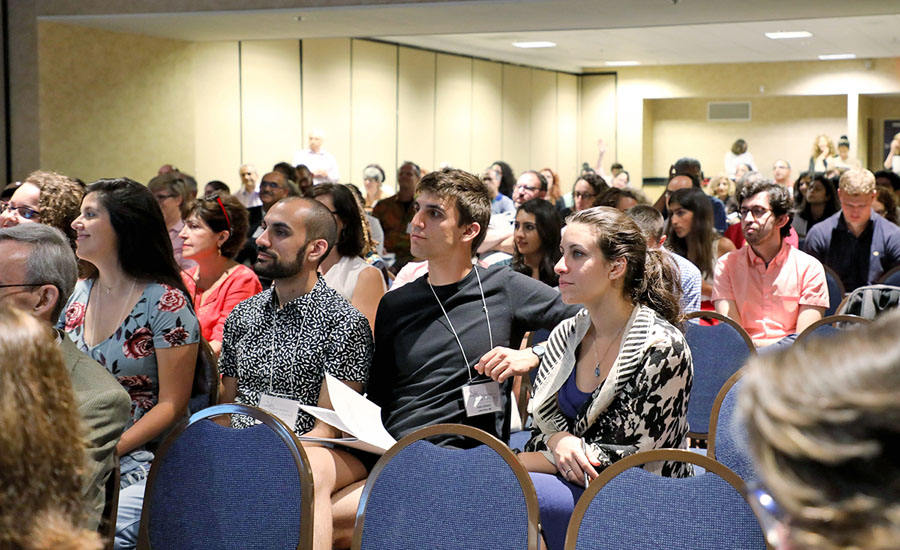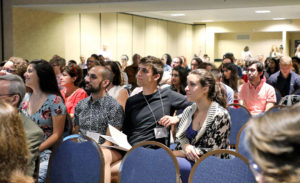



Spiritual empathy in our use of words will play a great role in bringing about understanding and progress toward a just society, said Anita Jefferson, a communication specialist and champion Toastmaster, in a breakout session on eloquent speech during the Conference of the Association for Baha’i Studies–North America, Aug. 9–12 in Atlanta.


It was one of many sessions over three afternoons that gave offered opportunities for smaller groups — a few dozen to a couple hundred — to learn about and share experiences relevant to social justice and constructive resilience.
“Words have power,” said Jefferson, and in the Baha’i community “they should have extraordinary power because we are charged with the duty to deliver a message” for the transformation of society. “It might not be something we think about a lot,” she said, but should because “we can influence lives.”
Eloquent speech starts with having the facts and phrasing what is said “in a way that’s acceptable,” she said. “How well we communicate is measured by not how well we say it but by how well it’s understood.”
Jefferson said “spiritual empathy” is a vital element of that speech. “We’re not here to slap someone with our knowledge. If we try to convince someone we’re right, it backfires.” But, she said, people can “change even a toxic atmosphere through a kind word, a word of praise.”
She called upon her audience to “practice true consultation” in all spheres of life. And vital to that, she said, is listening. “If we don’t listen, we are destroying the nobility of the one we’re engaging with.”
In short, said Jefferson, “The vitality of what we do every day depends on the eloquence of our speech. … You know you’ve done it when you are persuasive.”


The rich array of breakout sessions also included:


![]()
![]()
Whether you are exploring the Bahá'í Faith or looking to become an active member, there are various ways you can connect with our community.
Please ensure that all the Required Fields* are completed before submitting.